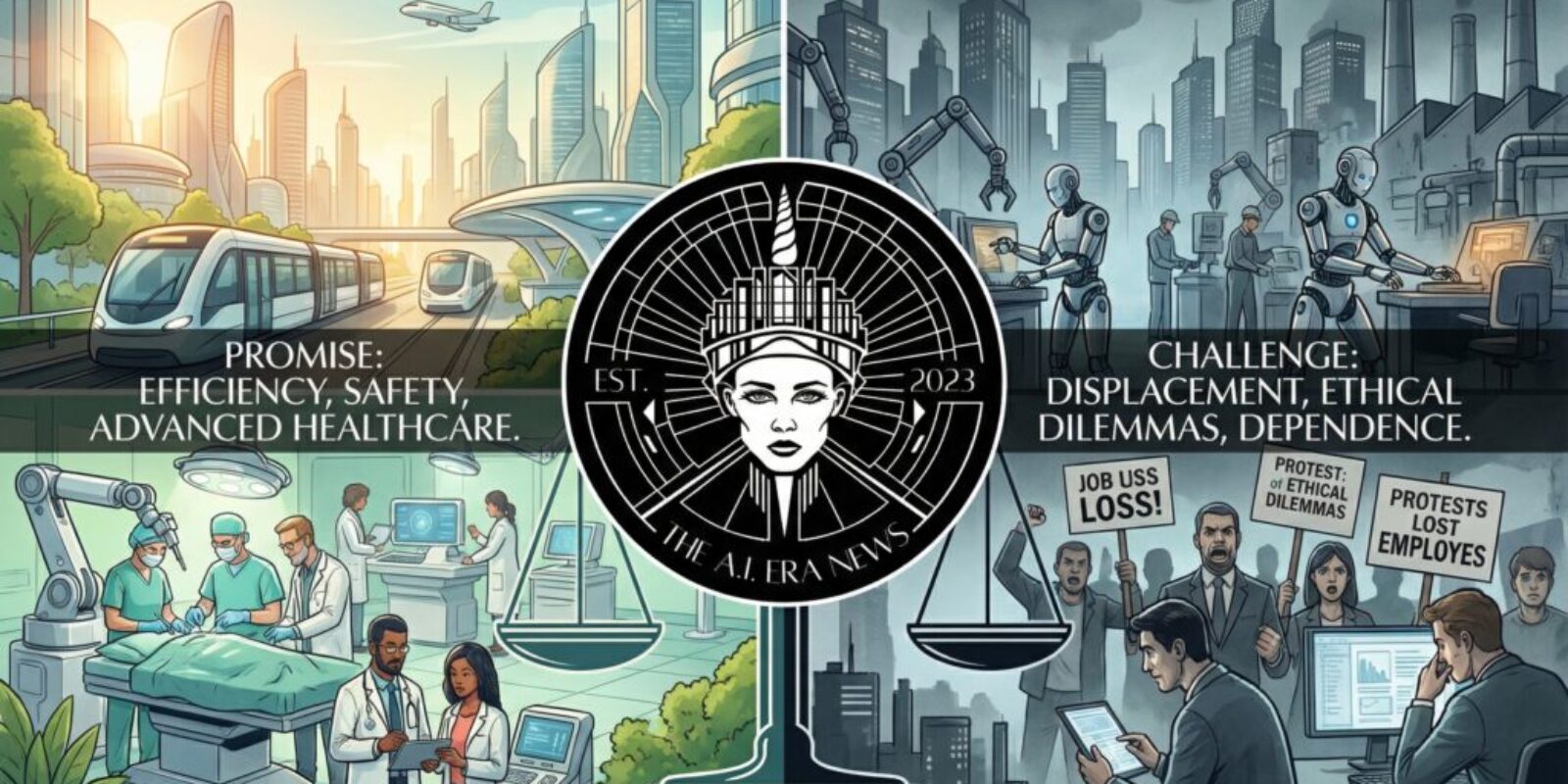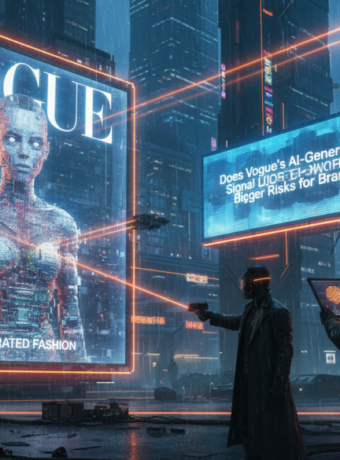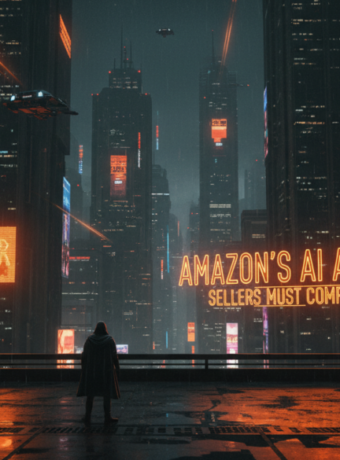Pros of Living in a World of Machines:
- Increased Efficiency:
AI-powered systems can perform tasks faster and more accurately than humans. This efficiency translates into improved productivity across various sectors, such as healthcare, manufacturing, and transportation. By automating repetitive tasks, AI frees human resources to focus on more complex and creative endeavors. - Enhanced Safety:
AI technologies can potentially improve safety in various domains. For instance, self-driving cars equipped with AI algorithms can reduce human errors on the road, potentially leading to fewer accidents. Additionally, AI-powered surveillance systems can help identify potential threats and enhance security measures. - Advanced Healthcare:
AI has transformed the healthcare industry by enabling early disease detection, personalized treatment plans, and efficient medical research. Machine learning algorithms can analyze vast amounts of patient data to identify patterns and make accurate diagnoses. This technology can potentially save lives by detecting diseases at their earliest stages. - Improved Accessibility:
AI has significantly improved accessibility for individuals with disabilities. Voice recognition systems allow people with limited mobility to interact with devices, while AI-powered translation tools break down language barriers, fostering communication across different cultures.
Cons of Living in a World of Machines:
- Job Displacement:
One of the most significant concerns regarding AI is the potential loss of jobs. As automation becomes more prevalent, specific roles may become obsolete, leading to unemployment or underemployment for some individuals. The challenge lies in ensuring a smooth transition for workers and providing opportunities for retraining and upskilling. - Ethical Dilemmas:
AI raises ethical concerns, particularly concerning privacy, bias, and decision-making. Machine learning algorithms can inadvertently reinforce existing biases present in training data, leading to discriminatory outcomes. Additionally, collecting and analyzing vast amounts of personal data raises concerns about privacy and surveillance. - Dependence on Technology:
As AI becomes more integrated into our daily lives, there is a risk of over-reliance on technology. This dependence may lead to losing critical thinking skills, reduced human interaction, and potential vulnerabilities to cyber threats. Striking a balance between technology and human capabilities is crucial to avoid these pitfalls. - Lack of Emotional Intelligence:
While AI systems excel at processing and analyzing data, they lack humans’ emotional intelligence and empathy. This limitation hinders their understanding of complex emotions and nuances in human interactions. In certain domains like healthcare or counseling, the absence of emotional connection may impact the quality of care provided.
FAQs (Frequently Asked Questions):
- Can AI completely replace human workers? While AI has the potential to automate specific tasks, it is unlikely to replace human workers completely. Instead, AI is expected to augment human capabilities, leading to new job opportunities requiring human skills and AI expertise.
- How can we address the ethical concerns associated with AI? Addressing ethical concerns requires transparency, accountability, and ongoing dialogue among stakeholders. Developing robust regulations and guidelines for the responsible use of AI is crucial to ensure fairness, privacy protection, and unbiased decision-making.
- Will AI ever possess consciousness? The concept of consciousness remains a subject of philosophical debate. While AI systems can mimic certain aspects of human behavior, true consciousness involves self-awareness and subjective experiences that machines have yet to replicate.
Conclusion
The impact of AI on society is both promising and challenging. While AI brings numerous benefits, such as increased efficiency, enhanced safety, and advanced healthcare, it raises concerns about job displacement, ethical dilemmas, and dependence on technology. Striking a balance between the advantages and disadvantages of AI is crucial to harness its potential while mitigating its drawbacks. By addressing ethical concerns, promoting responsible use, and fostering human-AI collaboration, we can create a future where machines and humans coexist harmoniously.
FAQs
Q: What is AI?
AI, or Artificial Intelligence, refers to developing computer systems that can perform tasks that typically require human intelligence. This includes tasks such as speech recognition, decision-making, problem-solving, and learning.
How does AI impact society?
AI has a significant impact on society in various ways. It can improve efficiency and productivity in healthcare, transportation, and manufacturing industries. It can also enhance decision-making processes and provide personalized experiences for individuals. However, it raises concerns about job displacement, privacy, and ethical implications.
What are the pros of living in a world of machines?
Living in a world of machines powered by AI has several advantages. It can lead to increased automation, making specific tasks more efficient and less prone to errors. AI can also provide valuable insights and predictions, aiding in decision-making processes. Additionally, it can improve the quality of life through healthcare, transportation, and communication advancements.
What are the cons of living in a world of machines?
While there are numerous benefits to AI, there are also potential drawbacks. One primary concern is the displacement of jobs as automation replaces specific roles. This can lead to unemployment and economic inequality if not adequately managed. There are also ethical concerns surrounding AI, including issues related to privacy, bias, and control over decision-making processes. Additionally, there is a risk of over-reliance on AI systems, which may result in losing human skills and critical thinking abilities.
How can we address the negative impacts of AI on society?
Several measures can be taken to mitigate AI’s negative impacts on society. Firstly, there should be a focus on retraining and upskilling workers whose jobs are at risk of being automated. This can help them transition into new roles that require human skills that are not easily replaceable by machines. Secondly, regulations and policies must be implemented to ensure the ethical use of AI, protect privacy, and prevent bias. Lastly, fostering a collaborative approach between humans and AI systems can help maximize the benefits while minimizing the risks associated with AI.
What is the future of AI in society?
The future of AI in society is promising yet uncertain. As technology advances, AI is expected to play an increasingly significant role in various aspects of our lives. It has the potential to revolutionize industries, improve efficiency, and enhance our overall quality of life. However, it is crucial to carefully navigate the ethical and societal implications to ensure that AI is developed and used responsibly for the benefit of all.



